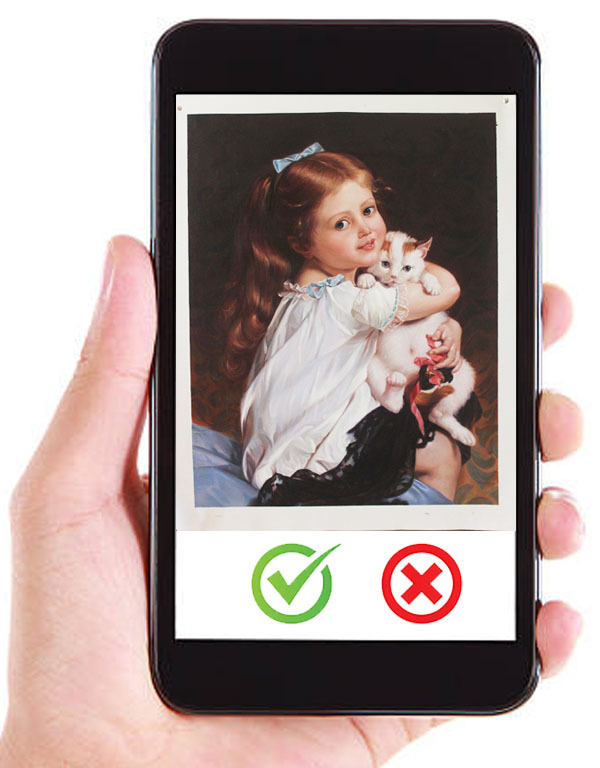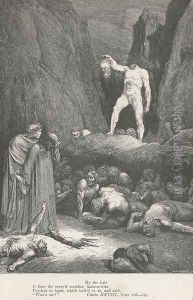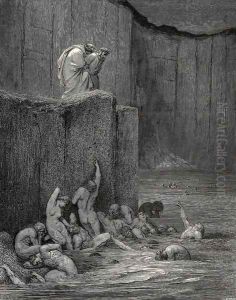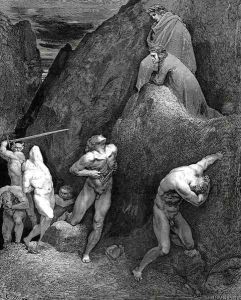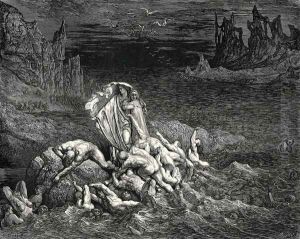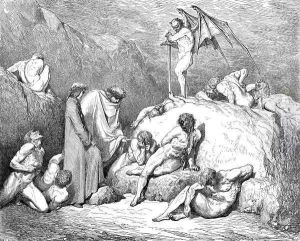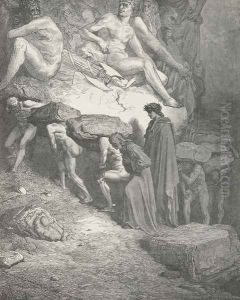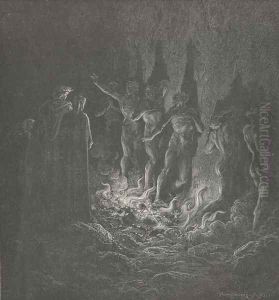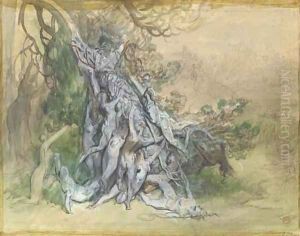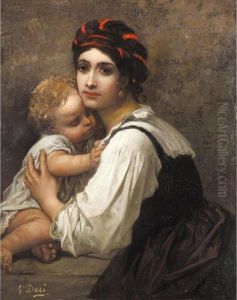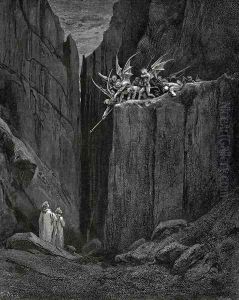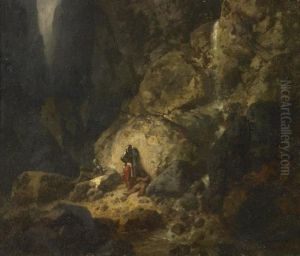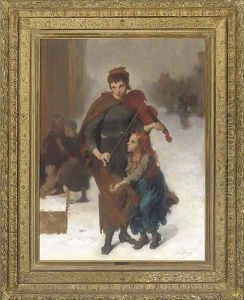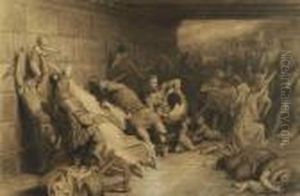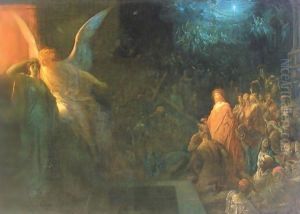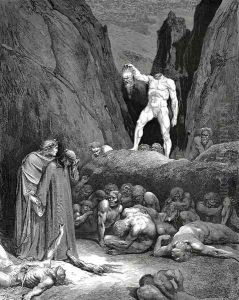





The Inferno, Canto 28, lines 116-119: By the hair It bore the sever'd member, lantern-wise Pendent in hand, which look'd at us and said, "Woe's me!"
-
About Reproduction
Discover the allure of art with our faithful reproduction of "The Inferno, Canto 28, lines 116-119: By the hair It bore the sever'd member, lantern-wise Pendent in hand, which look'd at us and said, "Woe's me!"", originally brought to life by the talented Gustave Dore. Unlike posters or prints, our hand-painted oil painting breathes an unique sense of depth and texture into your space. Every detail, every stroke, and every texture is meticulously recreated, paying the perfect homage to Gustave Dore and his artistic vision.
Owning this piece is more than just decoration - it's a statement of your refined taste in art. Let the vibrant colors and intricate details of this replica serve as a daily reminder of the beauty in our world. Elevate your decor and appreciate the richness of art with our replica of this masterpiece.
-
Painting Description
"The Inferno, Canto 28, lines 116-119: By the hair It bore the sever'd member, lantern-wise Pendent in hand, which look'd at us and said, 'Woe's me!'" is an illustration by the renowned French artist Gustave Doré, created as part of his extensive series of engravings for Dante Alighieri's epic poem, "The Divine Comedy." This particular artwork visually interprets a scene from Canto 28 of "Inferno," where Dante encounters the sowers of discord in the ninth bolgia of the eighth circle of Hell. These sinners are punished by being mutilated, as they had caused division and strife during their lives.
Doré's illustration captures the gruesome moment described in lines 116-119, where a damned soul, identified as Bertran de Born, holds his own severed head by the hair. The head is depicted as if it were a lantern, a macabre echo of the light of reason that the sinner once perverted to sow discord. The haunting image of the head speaking the words "Woe's me!" underscores the eternal regret and despair experienced by the souls in Dante's vision of Hell.
Gustave Doré's work on "The Divine Comedy" is widely regarded as one of his masterpieces, and his illustrations have had a lasting impact on the visual interpretation of Dante's text. His engravings for "Inferno" were first published in 1861 and have since become iconic, influencing both the arts and popular culture. Doré's ability to convey the dramatic intensity and emotional depth of the scenes he illustrated has made his work an enduring contribution to the visual arts and literary illustration.
-
Lead Time & Shipping
When you order this oil painting replica, it typically takes 2-3 weeks to paint. If the artwork is more complex, it might need a little more time to ensure the best quality. Once it's ready, we'll send you a photo for your approval. After you give the green light, we'll ship it to you for free.
-
Return & Refund
We believe in the quality of our hand-painted oil painting reproductions, and your satisfaction is our priority. If for any reason, you are not completely satisfied with your purchase, we offer a 45-day return policy. You can return your artwork within 45 days of receipt and receive a full refund. Please note that the artwork must be returned in the original packaging and in the same condition as it was received.




